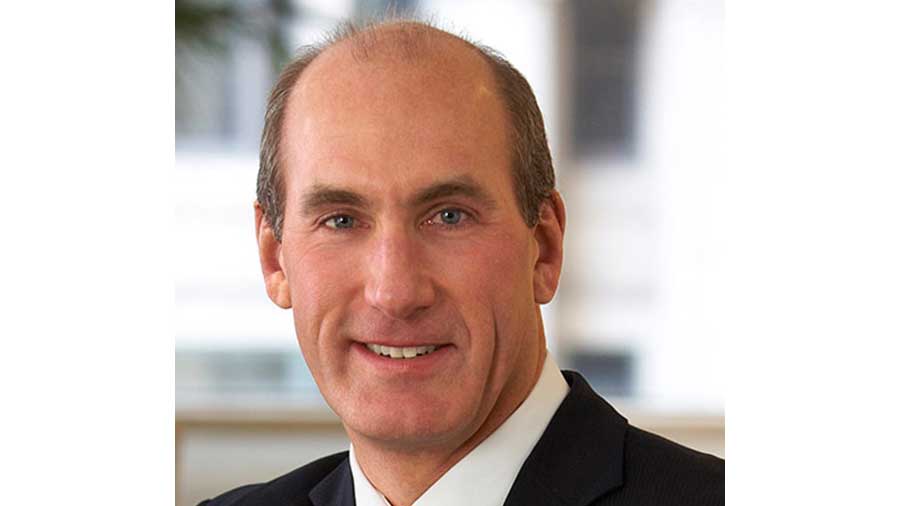Stankey Sees Time Warner Growing Consumer Biz After Merger

The smarter way to stay on top of broadcasting and cable industry. Sign up below
You are now subscribed
Your newsletter sign-up was successful
Growing Time Warner’s direct-to-consumer business will be a key priority after it is acquired by AT&T.
Speaking at the Bank of America Merrill Lynch Media, Communications and Entertainment Conference Thursday, AT&T senior executive VP John Stankey, who will run AT&T media business, said getting the importance of getting direct-to-consumer rights should not be underestimated.
AT&T brings to the combined company expertise with scaled consumer relationships, Stankey said.
Related: DirecTV Now Adds Signals From 25 Network Affiliates
AT&T has “the experience, the history and the advantage of having a lot of those through our distribution business,” he said. “The Time Warner Company clear[ly] has the ability to make great content, great intellectual property that can be extended and used to differentiate brand and experiences. And our belief is bringing those two together is extremely important in the future.”
Stankey noted that the media business is approaching an inflection point. The pay-TV business “is at peak and it’s going to decline. I think the question is what is the rate and pace.”
At the same time customers are experimenting with over-the-top streaming products, including AT&T’s DirecTV Now.
Related: Broadband Redlining Complaint Filed Against AT&T at FCC
“A lot of folks are round-tripping and coming back into the core bundles afterwards. I think they’re still searching for what the solution is,” Stankey said. “The solution is more on-demand capabilities, better user interface and higher value for the current amount people are paying. And I do believe the industry will react to that, albeit a little bit slow because of some of the licensing constructs that are out there.”
Stankey wants Time Warner’s units—Turner, HBO and Warner Bros.—to continue to make great content.
“My goal is not to go in and try to explain to creatives how they can do their job better. That is not what I’m good at nor is it my training or my expertise,” he said.
Related: AT&T Mulling Sale of Digital Life: Report
“What I do understand are things like industry structure, I understand the application of technology and distribution. I understand data and customer relationships, I understand integration and getting people to build business models effectively around the marriage of content and technology. And so my goal and my focus will be on facilitating that,” he said.
Stankey said that on its own, Time Warner recognized the changes in the industry and was looking at ways to be more collaborative. It was also getting into direct-to-consumer businesses, including Filmstruck with classic films, a Boomerang kids business and an upcoming sports service built around European soccer.
But in the first year after the AT&T-Time Warner merger is completed, Stankey expects the company to be able reach a number of goals.
With the AT&T platform, “you should expect to see experimentation and piloting content that's available today in traditional means that we can start to innovate on top. And we have got a great customer base to experiment with,” he said.
“We want more engagement, especially in an ad-supported business,” he added. “So there's other variants you should see on what I would call embedded content models that will be in the first year.”
AT&T will be using data to build up its ad business. “And even before we have full infrastructure on data and what I would call programmatic driven placement of advertising in the premium space, there's data that can help us sell existing ad inventory differently and more effectively and we will be doing that as we get through that first year,” Stankey said.
Without adding subscribers, using data to build new ad models should increase ad rates and open up new inventory.
But Stankey said AT&T wants to have a business with two healthy revenue streams.
“If customers really like a broad plethora of content, broad choice, you need both subscription and advertising to have the maximum amount of content being built. And we think that's the right thing for the industry and it's the right thing for the consumer,” he said.
The smarter way to stay on top of broadcasting and cable industry. Sign up below
Jon has been business editor of Broadcasting+Cable since 2010. He focuses on revenue-generating activities, including advertising and distribution, as well as executive intrigue and merger and acquisition activity. Just about any story is fair game, if a dollar sign can make its way into the article. Before B+C, Jon covered the industry for TVWeek, Cable World, Electronic Media, Advertising Age and The New York Post. A native New Yorker, Jon is hiding in plain sight in the suburbs of Chicago.

